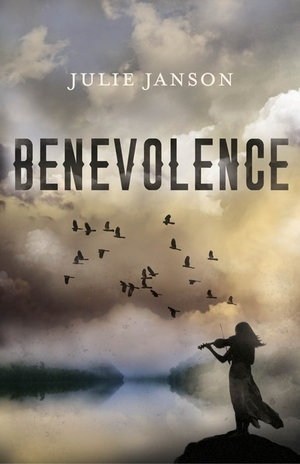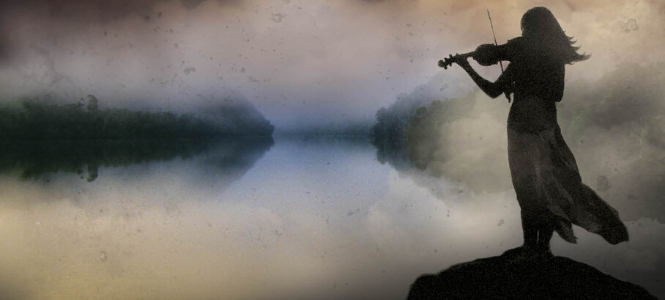Julie Janson is an award-winning poet, playwright and novelist, whose latest book is a novel called Benevolence. Julie is a Burruberongal woman of Darug Aboriginal Nation. She is co-recipient of the Oodgeroo Noonuccal Poetry Prize, 2016 and winner of the Judith Wright Poetry Prize, 2019. Her other novels include, The Crocodile Hotel and The Light Horse Ghost. Julie has written and produced plays, including two at Belvoir St Theatre – Black Mary and Gunjies and Two Plays.
Today, Julie’s on the blog to answer a few of our questions about Benevolence. Read on!
Please tell us a little about your book.
JJ: This historical novel is about the early years of colonisation of Australia. It is a piece of literary restorative justice and reconciliation. I hope it opens readers minds to truth telling and facing up to Australia’s bloody past. It also has love and lust and is, at times, funny.
It is a First Nations response to The Secret River by Kate Grenville. This is a wonderful book, but I was challenged by the ending where all the Burruberongal Darug people died in a massacre except for one old man. I asked myself the question: if all the Darug died, who were we?
I had researched my (Aboriginal) family history along the Hawkesbury River, and the Darug interpretation of those early days of colonial invasion is entirely different. I decided to write an historical novel that reflected the lives of Darug survivors and how people struggled to find ways to co-exist with the English invaders. The women tended to work as servants and the men as labourers and both were forced into indentured positions where they were rarely paid and often abused. Aboriginal peoples were treated like dirt, like slaves, by the English who were often ex-convicts or aristocrats and who believed they were superior to, well, everyone else.
What was your motivation for looking to your past?
JJ: There were so many mysteries about my father Neville, the main one being why was he unable to identify as an Aboriginal man. Racism is the answer. In the 1940s and ’50s, to be Aboriginal in NSW was to be dirt. He was called Jedda by his workmates and often went fishing, hunting, and ‘going bush’. Us kids camped with him up on the Hawkesbury River in a cave, sleeping on bracken beds covered with army great coats. I was called ‘a little white blackfella’ and could run like the wind. Now there is pride by many of our cousins in our Aboriginal identity.
Did you do all this research out of curiosity or specifically to write the book? Can you describe how you felt researching something as emotional as your family?
JJ: As any Aboriginal person who came to identify as an adult because of secrecy will testify, it is a difficult path. I was determined to find out about my culture as soon as I graduated as a teacher. I took up a teaching post in a remote Aboriginal community on a Hong Kong consortium-owned cattle station. I encountered racism where the white station manager would set his dogs on the Aboriginal children as they passed his house. I wrote my first novel The Crocodile Hotel about that time.
I then moved to North East Arnhem land, and became a member of a Yolngu family and was welcomed into the community. There was Traditional ceremony every day. I became immersed in everyday life such as catching mud crabs with the women, learning to use plant dyes on baskets and began a journey into knowledge about spirit worlds. The emotional journey of discovering my own past and culture has been at times agonising. However, I am blessed by the sister relationships I have developed with important Aboriginal women from all walks of life, and I have been taught to speak up and be proud of my Darug ancestry.
Benevolence is an immersive read and deeply emotional. Were you able to feel what your ancestors may have felt whilst writing the book?
JJ: Often a novelist will find the truth for the story in their own lives.
When I was young, I experienced the life of a homeless single mother living on Weetbix. So, Mary’s struggle to feed her children is drawn from my feelings of desperation. Also, as a woman who fought for equality in a male dominated world, I wanted to create a character who would not be a victim, no matter how terrible the circumstances. I found an entry in the Benevolent Society in Windsor that showed my great great Grandmother was forced to give up three children in 1860 because “the mother could not feed them”. Dispossession and invasion had its consequences and as I struggled to find the character of my protagonist, I studied the birth, marriage and death certificates of Dad’s great grandmother. The gaps often gave me clues to her life. No birth certificate was found until I left the father’s name blank in the search and suddenly, I found the evidence of a child born to a famous C of E Reverend in Windsor.
This was a scandalous and surprising development. And had a wonderful storytelling element.
If you could go back in time to the early 1800s, would you have done what Muraging did and run away to discover her roots and try and find her father?
JJ: I have always been a determined person, and I think I would have behaved exactly as she did. However, the romantic aspect of Mary James’s life also reflects my way of believing in finding love and companionship. Mary follows her first love up a mountain in Kurrajong to join his people who were battling English troopers. In my case, I found different husbands at different times, like she did. A supportive male or female partner is a wonderful thing, especially in this time of Covid-19.
What do you hope readers will get out of reading Benevolence?
JJ: I hope people won’t feel too sad. Even in the face of murders and children stolen, some hope can come. I trust readers follow Mary’s journey and learn about the Darug history of early Sydney. I hope people realise that even if Aboriginal people are fair of skin, it doesn’t mean they are less Aboriginal. We are also proud of other ancestry as well. I grew tired of white friends saying, ‘but you don’t look Aboriginal’. I had to take a stand and realise that if I was on this journey of reconnecting to my father’s ancestors, then I had to do it with all my heart. I worked in Aboriginal education most of my life. I would stand up to all kinds of racism and sexism and be brave. I was determined to speak up and not accept the terrible prejudice that can pour from any mouth on any day. To stand with Adam Goodes.
—Benevolence by Julie Janson (Magabala Books) is out now.
This book is part of our First Nations of Australia: Stories & Storytelling collection.

Benevolence
For perhaps the first time in novel form, Benevolence presents an important era in Australia’s history from an Aboriginal perspective.
Benevolence is told from the perspective of Darug woman, Muraging (Mary James), born around 1813. Mary’s was one of the earliest Darug generations to experience the impact of British colonisation. At an early age Muraging is given over to the Parramatta Native School by her Darug father. From here she embarks on a journey of discovery and a search for...








 Cassie Hamer answers our Ten Terrifying Questions!
Cassie Hamer answers our Ten Terrifying Questions!  Win 1 of 10 passes to ‘A Romance Rendezvous’
Win 1 of 10 passes to ‘A Romance Rendezvous’  Bron’s Favourite Reads of the Year
Bron’s Favourite Reads of the Year
Comments
No comments